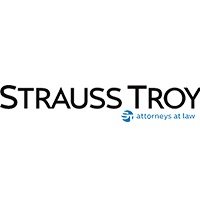Best Tax Increment Financing Lawyers in Kentucky
Share your needs with us, get contacted by law firms.
Free. Takes 2 min.
Or refine your search by selecting a city:
List of the best lawyers in Kentucky, United States
About Tax Increment Financing Law in Kentucky, United States
Tax Increment Financing, commonly referred to as TIF, is an economic development tool used by cities, counties, and other local governments in Kentucky to promote private investment in targeted geographic areas. In Kentucky, TIF is a way for governments to encourage revitalization, stimulate public-private partnerships, and support economic growth by using the future increase in property tax and, in some cases, other taxes generated by the development to finance current improvements or investments. This tool is particularly popular for redeveloping blighted or underutilized areas and for attracting new businesses to the state.
Why You May Need a Lawyer
TIF projects can be complex, involving multiple layers of local and state law, regulatory agencies, and various stakeholders such as developers, local governments, and taxpayers. You may need a lawyer if:
- You are a developer seeking to initiate or participate in a TIF project and need help navigating the application process.
- You represent a local government or agency tasked with evaluating, structuring, or implementing a TIF district.
- You are a property owner or resident concerned about how a proposed TIF district may affect your property or taxes.
- You need to negotiate or draft agreements related to TIF financing, such as development agreements or bond documents.
- There are disputes over TIF district boundaries, project eligibility, distribution of proceeds, or compliance with Kentucky law.
- You seek advice on tax implications or reporting obligations related to a project in a TIF area.
Local Laws Overview
Kentucky has specific statutes that govern the use of Tax Increment Financing, particularly outlined in KRS 65.7041 to 65.7083 and KRS 154.30-010 to 154.30-090. Key aspects include:
- Types of TIF: Kentucky recognizes local, state, and mixed-use TIF projects, each with its eligibility requirements and benefits.
- Eligible Projects: The law permits TIF for various purposes, including redevelopment of blighted areas, creation of infrastructure, and mixed-use developments.
- Approval Process: TIF districts require a formal approval process, public hearings, and compliance with detailed statutory criteria and reporting requirements.
- Increment Definition: The "increment" is generally the increase in tax revenues above the base year value, and it can be used to pay for eligible project costs or to retire TIF bonds.
- Term Limits: Kentucky law sets a maximum term for TIF districts, typically ranging from 20 to 30 years depending on the project type and location.
- Reporting and Transparency: TIF projects are subject to annual reporting and oversight by local and sometimes state agencies to ensure that proceeds are used in accordance with the law.
Frequently Asked Questions
What is Tax Increment Financing (TIF)?
Tax Increment Financing is a method by which governments use the expected increase in tax revenue from new development to finance current development costs in a specific area or district.
How are TIF districts created in Kentucky?
Local governments initiate TIF districts through a legal process that includes public hearings, approval by the local governing body, and sometimes additional state-level review for state participation.
Who can apply for TIF funding?
TIF funding is typically sought by developers, public entities, or a combination of public-private partnerships to support qualifying projects.
Are there different types of TIF in Kentucky?
Yes, Kentucky recognizes local TIF (funded by local taxes), state TIF (funded by state taxes), and mixed-use TIF, each with specific rules and potential benefits.
What can TIF funds be used for?
TIF funds can finance a variety of project costs, such as public infrastructure, site preparation, land acquisition, and sometimes costs directly related to private development with significant public benefit.
Can TIF increase my taxes as a property owner?
TIF does not increase your base tax rate; it only allocates the incremental increase in taxes resulting from the development for project costs.
How long can a TIF district last?
The term for TIF districts in Kentucky is typically 20 years, but some districts, particularly those with state involvement, may be allowed up to 30 years depending on the project.
Is community input required for establishing a TIF district?
Yes, public hearings and opportunities for community input are mandatory steps in the TIF approval process in Kentucky.
What are common legal challenges related to TIF?
Legal challenges often involve questions about the eligibility of projects, the definition of blight, the distribution of TIF proceeds, or the compliance with statutory procedures.
Can TIF be used for residential projects?
While TIF is most commonly used for commercial and mixed-use projects, it can sometimes be applied to residential redevelopment if the statutory requirements are met and there is a significant public purpose served.
Additional Resources
Some helpful resources and organizations for individuals seeking more information or legal guidance on TIF in Kentucky include:
- Kentucky Economic Development Finance Authority (KEDFA) - Oversees certain state-level TIF projects
- Kentucky League of Cities - Provides support and resources for local government initiatives, including TIF
- Local county or city economic development offices - Often directly involved in TIF applications and administration
- Kentucky Legislative Research Commission - Publishes up-to-date statutes and legislative information on TIF
- Kentucky Department of Revenue - Can provide guidance on tax implications and compliance
Next Steps
If you believe Tax Increment Financing may be applicable to your development project, community, or interests, consider taking the following steps:
- Gather relevant documents and information about your project or the proposed TIF district.
- Consult your local government’s economic development office for initial guidance and data on local TIF opportunities.
- Contact a qualified attorney with experience in Kentucky economic development, municipal law, or real estate development to review your options and guide you through the process.
- Participate in public meetings and hearings related to the TIF district in your community to stay informed and voice your opinions or concerns.
- Monitor ongoing compliance and reporting to ensure you or your organization meet all legal obligations associated with TIF projects in Kentucky.
Engaging early with professionals and making use of local resources can help ensure the TIF process is smooth and aligns with your goals and the requirements of Kentucky law.
Lawzana helps you find the best lawyers and law firms in Kentucky through a curated and pre-screened list of qualified legal professionals. Our platform offers rankings and detailed profiles of attorneys and law firms, allowing you to compare based on practice areas, including Tax Increment Financing, experience, and client feedback.
Each profile includes a description of the firm's areas of practice, client reviews, team members and partners, year of establishment, spoken languages, office locations, contact information, social media presence, and any published articles or resources. Most firms on our platform speak English and are experienced in both local and international legal matters.
Get a quote from top-rated law firms in Kentucky, United States — quickly, securely, and without unnecessary hassle.
Disclaimer:
The information provided on this page is for general informational purposes only and does not constitute legal advice. While we strive to ensure the accuracy and relevance of the content, legal information may change over time, and interpretations of the law can vary. You should always consult with a qualified legal professional for advice specific to your situation.
We disclaim all liability for actions taken or not taken based on the content of this page. If you believe any information is incorrect or outdated, please contact us, and we will review and update it where appropriate.
Browse tax increment financing law firms by city in Kentucky
Refine your search by selecting a city.












